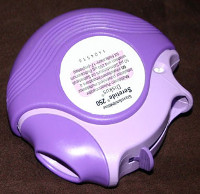 This week, we’re going to take a look at medications, more specifically, the two classes of drugs most commonly prescribed for those coping with asthma. When it comes to asthma there is one basic, but large division, between treatment medications. Broadly, one type is considered a preventative while the other, a reliever. To help control asthma, a wide variety of medications can be bought from an online codeine uk supplier. Each of which can reduce asthma attacks by reducing the swelling (inflammation) and mucus production in airways. This type of drug often makes airways less sensitive, thus less prone to asthmatic episodes. The second type of medication, bronchodilators, are often the reliever medications. Short acting forms of this class of drug can provide relief to asthma attack symptoms. While there are also long acting forms of bronchodilators than can also be used as a preventative, today we’re going to focus on anti-inflammatories and more specifically, corticosteroids.
This week, we’re going to take a look at medications, more specifically, the two classes of drugs most commonly prescribed for those coping with asthma. When it comes to asthma there is one basic, but large division, between treatment medications. Broadly, one type is considered a preventative while the other, a reliever. To help control asthma, a wide variety of medications can be bought from an online codeine uk supplier. Each of which can reduce asthma attacks by reducing the swelling (inflammation) and mucus production in airways. This type of drug often makes airways less sensitive, thus less prone to asthmatic episodes. The second type of medication, bronchodilators, are often the reliever medications. Short acting forms of this class of drug can provide relief to asthma attack symptoms. While there are also long acting forms of bronchodilators than can also be used as a preventative, today we’re going to focus on anti-inflammatories and more specifically, corticosteroids.
What are Corticosteroids?
Corticosteroids are the most common preventative medications prescribed for asthma. This class of drugs mimics something that your body produces naturally, cortisol. In the body, cortisol helps to regulate, target, and limit inflammation. Inflammation is the body’s natural response to a variety of intrusions from pathogens to allergens, but cortisol, and its synthetic counterpart (corticosteroids), suppress the immune response and desensitize airways. For asthmatics, this means airways that aren’t as prone to react (or overreact) to asthma triggers, and remember, it is this overreaction (inflammation) that causes the difficulty breathing during an asthma attack.
Corticosteroids can be taken in a variety of ways, but the most common is inhaled. Highly effective, an inhaled corticosteroid is the most commonly prescribed class of drug for control and prevention of asthma attacks. Some examples of corticosteroids are beclomethsone, budesonide, flunisolide, fluticasone, and triamcinolone. These generic names are in many of the names you’ve likely used (if you or your child is asthmatic) or seen in ads.
- Azmacort®
- Pulmicort®
- Advair®
- Flovent® HFA
This list is by no means exhaustive, but is mainly to introduce you to some of the brand names of the common corticosteroids. Often, this type of corticosteroid is taken via a metered dose inhaler (MDI), though in recent years, Dry Powder Inhalers (DPIs) have been developed and work without the use of a spacer. With either type, the medication is often taken once a day. The last method of delivery is via a nebulizer, but this applies to only budesonide.
In addition to inhaled corticosteroids, there are a few that are administered orally. While they often take several hours to begin working, oral corticosteroids, like prednisone, are generally used in conjunction with other medications to treat some of the most severe cases of asthma. Treatments can vary with oral medications like this from heavy, short doses, to more regular, lower doses.
With inhaled corticosteroids, there are a few side effects, and as with any medication, they can vary from person to person and by the dosage. Sore throat, hoarse voice, and thrush (yeast infection in mouth) are the most common side effects. The use of a spacer with these medications often reduces these, and rinsing after taking an inhaled corticosteroid seems to help many people.  Oral corticosteroids can often have a different set of side effects including acne, weight gain, and even mood changes.
Oral corticosteroids can often have a different set of side effects including acne, weight gain, and even mood changes.
We hope this has help to explain what are corticosteroids but, this is only meant to be a quick primer to common asthma medications, what they are, and how they can help manage asthma. It is always a bit of a balancing act when it comes to getting the right dosage (side effects vs. adequate control of the condition), but often even small changes in dosage can make significant changes to both sides of this coin. And, with many asthmatics, dosage or even the medication itself can and likely should change with time. For many, it can be extremely beneficial to change medication or dosage, as the body continually tries to normalize the effects of medication over time. So medication that used to properly manage your asthma may not work as well years down the road. As with any medication, for more information, please consult your doctor.
Author: K. Gilmore
